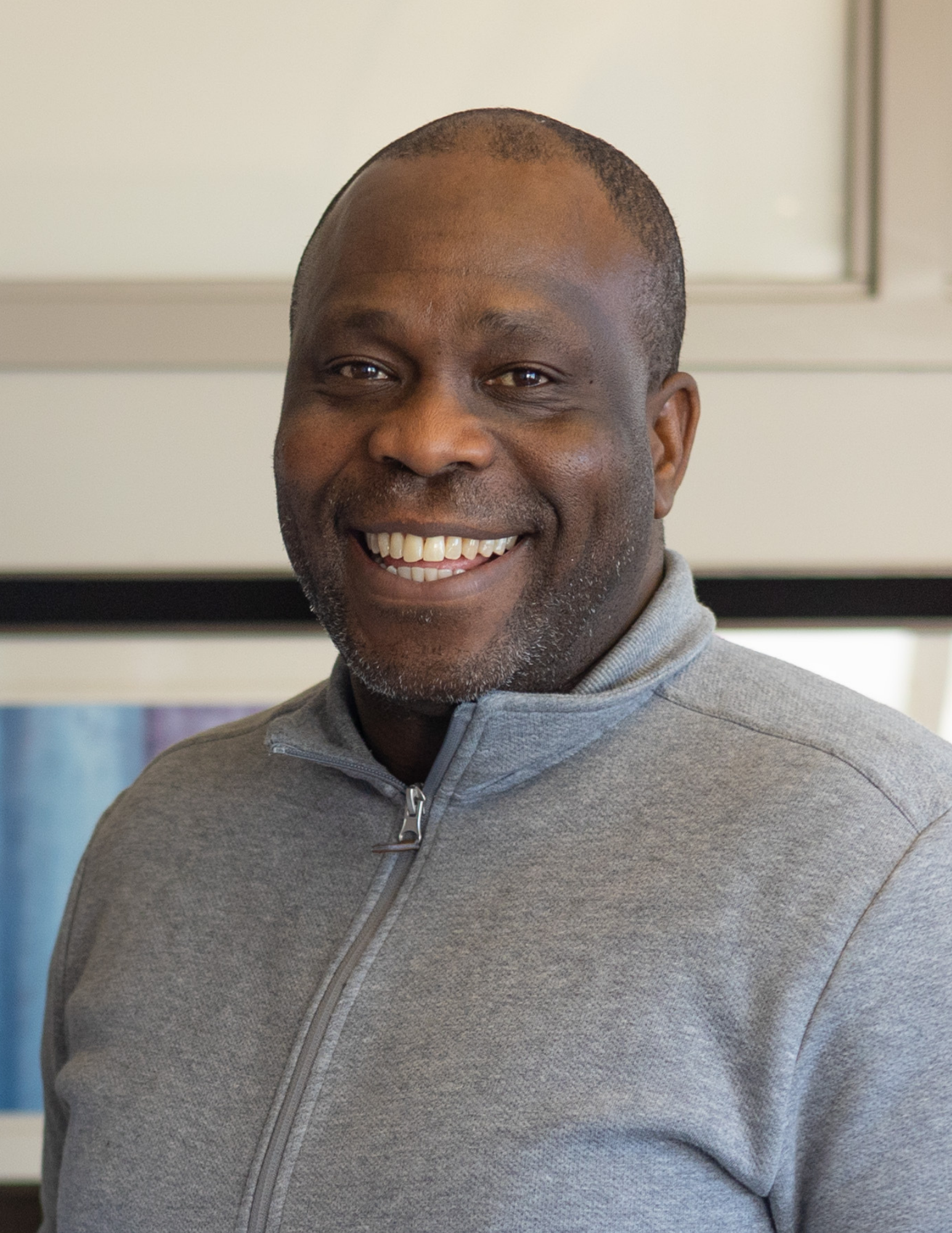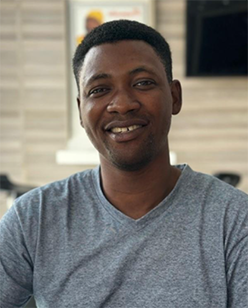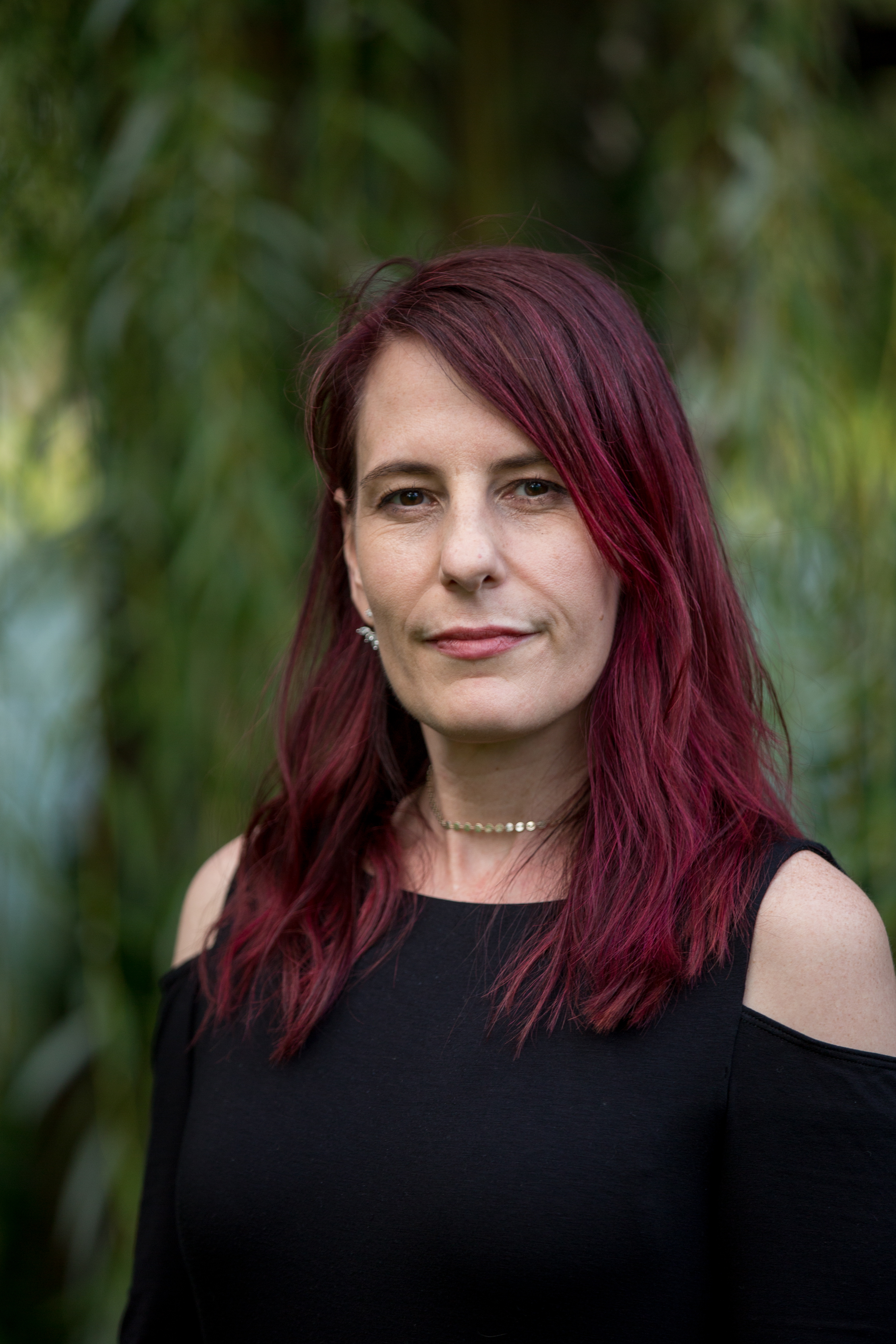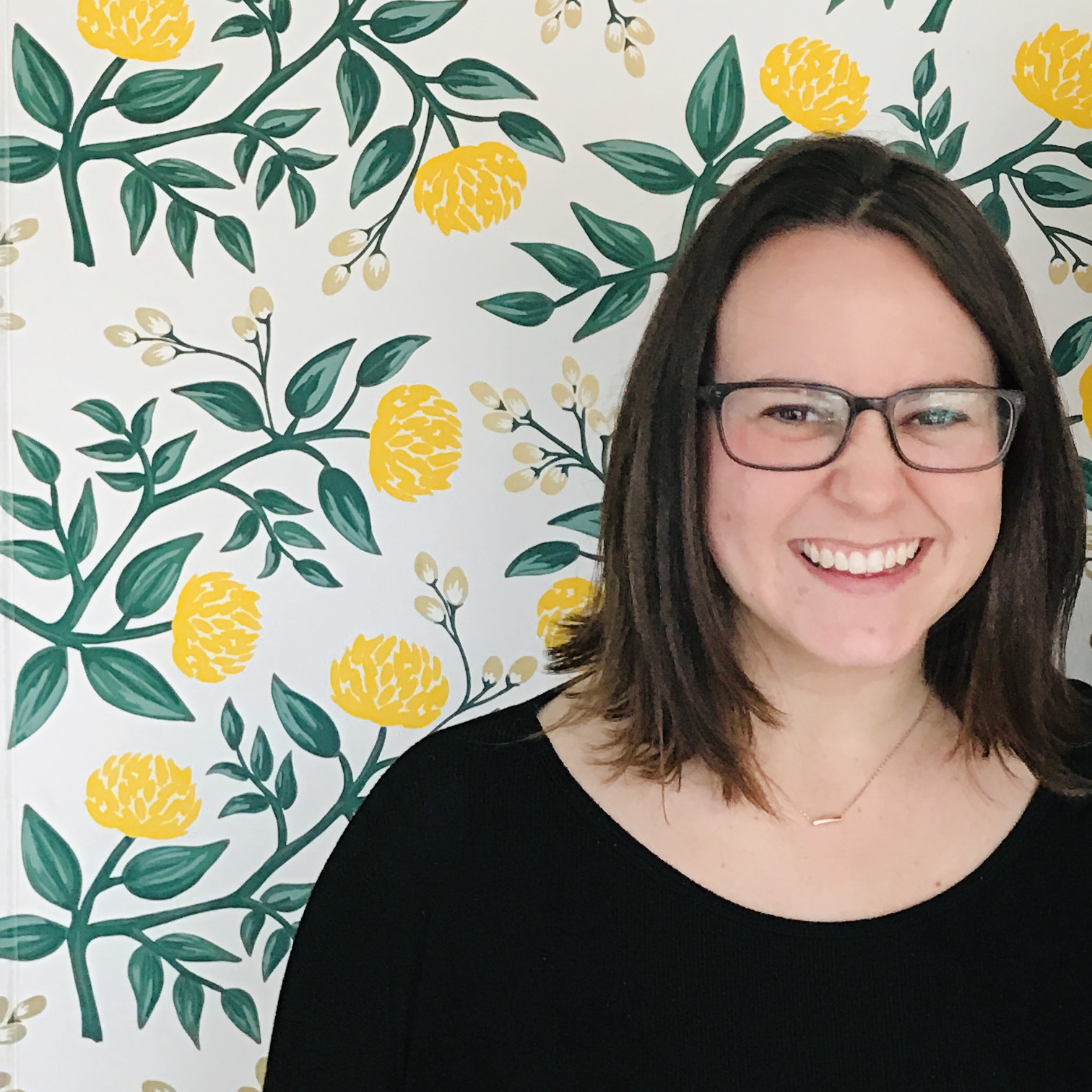
Digital Humanities Fellows
Thinking and Building Together
The Digital Humanities Fellows are a cohort of faculty members, staff, and students from across the university committed to thinking and working together for an academic year. Joining with the IDRH Digital Storytelling Colloquium, the Fellows cohort is designed to form the foundation of an ongoing, institution-wide conversation about issues in the public and digital humanities. Fellows will workshop projects, attend events, and be granted unique access to networking opportunities and training in DH methods and tools.
2025-2026 Fellows
Adesoji Adedipe
History
Adesoji Adedipe's digital humanities project evolves from his dissertation chapter tentatively titled “Spatial mapping of segregation and settlement patterns in Lagos and Salvador since the 20th century.” His pilot project is a critical spatial and textual analysis of how residential spaces in the cities of Lagos, Nigeria and Salvador, Brazil have been laid out overtime from the colonial period, through the era of military dictatorship and the return to democracy in the same century. The project’s ultimate goal is mapping these cities to create digital narratives. This is a socio spatial organization study which is connected to unequal health outcomes and how it impacts the well-being of low- and middle-income peoples in both states.
This project utilizes digital mapping to chronicle and unveil how historical epochs can reveal continuities, contestations and discontinuities of issues around segregation, housing, inequality, and health outcomes. Adedipe will develop digital maps to further deepen the understanding of spatial relationships and its impacts to the health and wellbeing of the people who live there.

Sunday Adesoye Adegbenro
English
Sunday Adesoye Adegbenro is developing a digital storytelling exhibit that maps and curates representations of Nigerians living with sickle cell disease (SCD). The project draws from Nollywood films, newspaper archives, advocacy campaigns, and social media content to foreground how SCD has been narrated, silenced, and contested in Nigerian cultural life. Using ArcGIS StoryMaps, the exhibit integrates multimedia, narrative context, geotagged advocacy activities, translated transcripts, and thematic timelines that will enable visitors to trace the evolving cultural scripts and public memory around SCD in Nigeria. The exhibit also includes basic data visualizations to highlight patterns of stigma, resilience, and digital resistance. Rooted in disability rhetoric, African digital humanities, and public health storytelling, this archive aims to serve families, educators, advocates, and researchers by making these narratives more accessible, teachable, and usable. In future phases, the project will expand to incorporate oral histories and develop into a larger archive of sickle cell narratives in partnership with local and international organizations.

Jane Barnette
Theatre & Dance
In 2000, The Tectonic Theater Project premiered The Laramie Project. Based on oral histories and journal entries, this documentary drama has since become an icon of queer theatre. We plan to produce it in April 2026 as part of the KU Theatre and Dance season. For us, Laramie is not distant history or about an event that happened in a rural Western small town but an encounter that includes our community here and now. To do so, we are collecting local Kansans’ stories, centering queer joy but also acknowledging the escalating threats faced by the LGBTQIA+ community.
With the assistance of a DH cohort, Barnette will curate the materials discovered into a secure and searchable archive that inspires the designers and cast of our show during their spring rehearsals. By April 2026, when we open The Laramie Project, some portions of this archive will become public facing, allowing us to share not only the stories from Wyoming in 1998 but also selections from what KU students gather here in Kansas in 2025. Barnette's long-range goal is to transform this archive into performances of our own local and contemporary stories that spotlight the experiences of queer Kansans.

Poppy DeltaDawn
Visual Art
Poppy DeltaDawn, Assistant Professor of Visual Art in Textiles + Fiber, is developing a project that transforms the university's Living Archive of Textile and Fiber into a dynamic research platform. The archive contains over 500 objects, 1,000+ specialized texts, and historical documentation spanning more than a century of textile education. This project applies computational methods including computer vision, network analysis, and spatial visualization to examine how textile knowledge and cultural practices have circulated through institutions globally and across cultures. DeltaDawn is creating searchable databases of visual patterns and developing interactive timelines that place local textile production within global material culture contexts. The research addresses questions about material knowledge transmission that traditional archival methods cannot answer: How do textile techniques migrate across cultures and time periods? How can digital tools reveal connections between local practices and global material cultures?
Christine Singleton
English
Christine Singleton will be creating a Black Feminist Phone Tree (BFPT) as part of the IDRH Digital Humanities Fellowship. She has chosen ten Black feminist theorists to center the BFPT around: Beverly Guy-Sheftall, Barbara Smith, Audre Lorde, bell hooks, Zora Neale Hurston, Ntozake Shange, Alexis Pauline Gumbs, Sojourner Truth, Alice Walker, and Angela Davis. They will create an Entity Relationship Diagram to showcase how these scholars are in conversation with past, present, and future feminists. The finished project will resemble a family tree. Each feminist scholar will have their name in a large square with satellite offshoots of those whose work engages with the primary theorist. For example, Alice Walker’s square would connect her to Zora Neale Hurston, Salamishah Tillet, and Delores Williams. Because much of the theoretical dialogue around feminism is within the university system, it is filled with discipline-specific terms that can leave many outside of this system feeling confused and unheard. Singleton believes that having the BFPT as a digital, public-facing document will provide an accessible entry point into Black feminism for those who are not in academia. The BFPT will, she hopes, help people recognize the shared stake we all have in saving the world.
Maggie Unverzagt Goddard
Museum Studies
Maggie Unverzagt Goddard is an assistant professor in Museum Studies. Her project uses digital humanities methods to develop interpretive tools for telling the multilayered history of Comanche, a horse that survived the Battle of Greasy Grass/Little Bighorn and was subsequently taxidermized. The horse has been on display at KU’s Biodiversity Institute and Natural History Museum for over a hundred years through different processes of conservation, interpretation, and contestation. Through an interface that contextualizes objects culturally, historically, and through their use in museums, she is creating a website for visitors to explore the horse through a wide range of interpretive possibilities: as memorial, specimen, military artifact, representation of colonial expansion, preserved taxidermy, object of protest, artwork, or animal. By engaging with difficult histories in generative ways, museums can facilitate complex conversations about our connections with the past and how we use objects to construct our communities, the nation, and ourselves.

2024-2025 Fellows
Chamisa Edmo (Electrical Engineering and Computer Science)
Linda Galvane (East Asian Languages and Cultures)
Luisa J. Garcés Sierra (Spanish and Portuguese)
Elizabeth MacGonagle (History and African & African-American Studies)
Emily Monty (Art History)
Kip Perry (History)
Margarita Rivera Arrivillaga (Anthropology)
Oluwaseun Sanwoolu (Philosophy)
Rachel Schwaller (History and Religious Studies)
Dominique Stringer (Museum Studies)
2023-2024 Fellows
Jessina Emmert (Women, Gender, and Sexuality Studies)
Brigid Enchill (French, Francophone, and Italian Studies)
Rebecca Johnston (Cyber Social Fellow, CREES & CSSD)
Annabelle Lyne (History)
Haoran Ni (History)
Ninel Valderrama (Spanish and Portuguese Studies)
Aimee Wilson (Women, Gender, and Sexuality Studies)
2022-2023 Fellows
Ben Allen (Psychology)
Aylar Atadurdyyeva (Global and International Studies, Microbiology, Political Science, and Slavic Studies)
Samantha Bishop Simmons (Libraries)
Allison Charba (Museum Studies)
Jana Hunter (ATLAS)
Sheyda Jahanbani (History)
Ayako Mizumura (East Asian Studies)
Shawna Shipley Gates (Women, Gender, and Sexuality Studies)
Yidong Wang (Hall Center for the Humanities)
Giselle Liza Anatol & Madeleine Bonnallie (Gunn Center for the Study of Science Fiction)
2021-2022 Fellows
Rebekah Aycock (American Studies)
Haley Bajorek (Museum Studies & African and African American Studies)
Jade Harrison (African American Literature)
Terry Koenig, PhD, LSCSW (School of Social Welfare)
Sandra Leon (Department of Spanish & Portuguese)
Brent Metz, PhD (Anthropology)
Lena Mose (American Studies; Women, Gender & Sexuality Studies)
Cameron Piercy, PhD (Communication Studies)
Silvia Sanchez (Cultural Anthropology)
Fernando Santos (Department of Spanish & Portuguese)
2020-2021 Fellows
L. Marie Avila, MLS (Libraries)
Ignacio Carvajal, PhD (Spanish & Portuguese)
Bobby Cervantes (American Studies)
Germaine Halegoua, PhD (Film & Media Studies)
Ayesha Hardison, PhD (English, Women, Gender & Sexuality Studies)
Shane Lynch (American Studies)
Joey Orr, PhD (Spencer Museum of Art)
Hyunjin Seo, PhD (School of Journalism & Mass Communications)
Erin Wolfe, MLS (Libraries)
James Yeku, PhD (African and African American Studies)